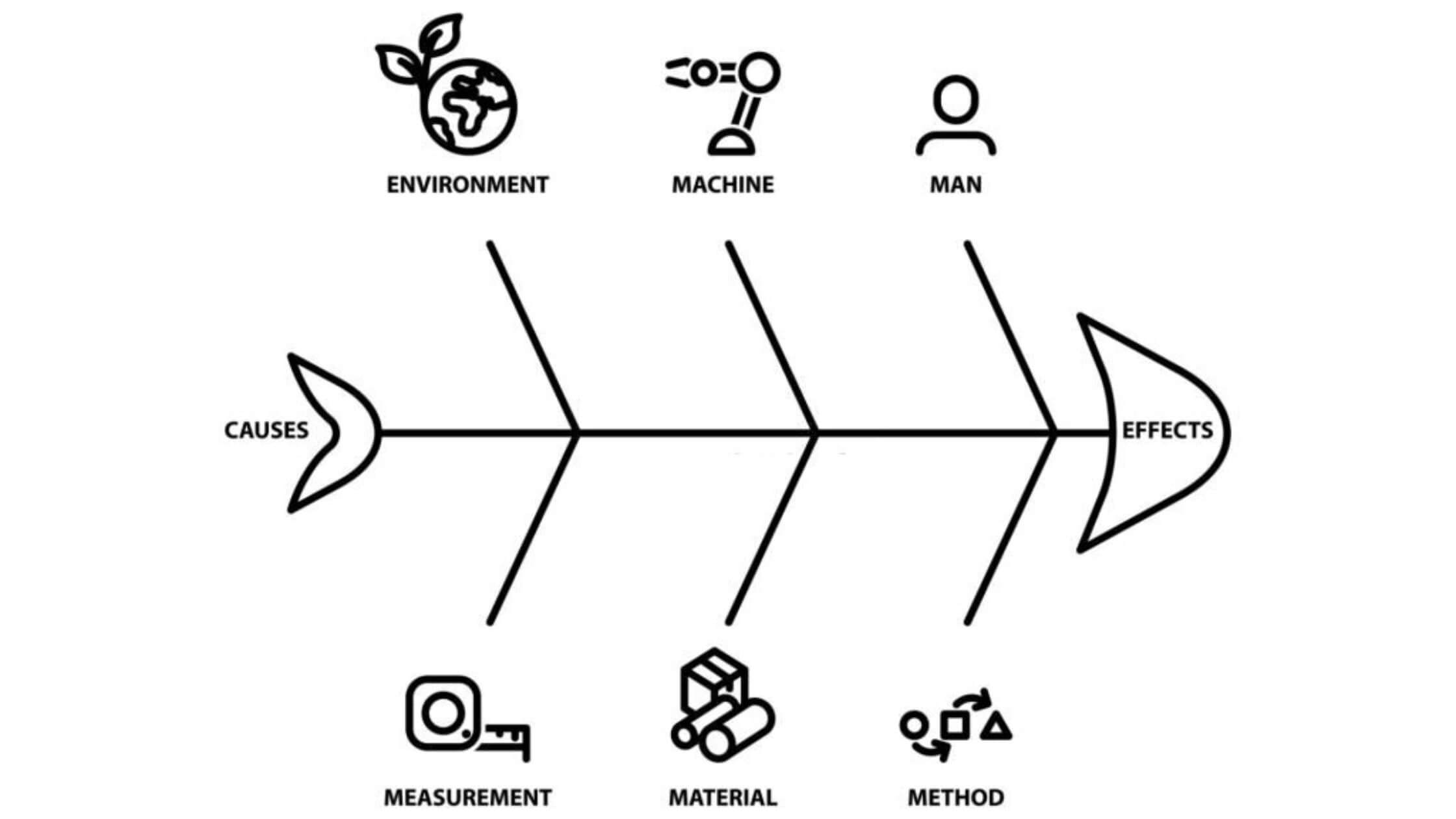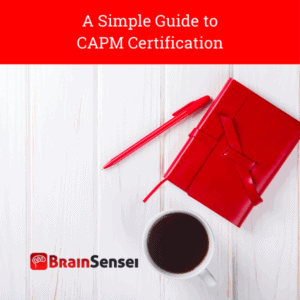

 Thinking of CAPM certification?
Thinking of CAPM certification?
It’s a great idea. The CAPM certification is specially designed for people interested in project management or just starting their careers in project management, as well as project team members who want to demonstrate and make official their project management knowledge. As they say right on the PMI website:
“Regardless of your career stage, the Certified Associate in Project Management (CAPM)® is an asset that will distinguish you in the job market and enhance your credibility and effectiveness working on — or with — project teams.”
Pass the CAPM Certification
People who pass the CAPM have demonstrated their knowledge of the principles and terminology in A Guide to the Project Management Body of Knowledge (PMBOK® Guide). This may seem like a lot for someone early in their career experience with project management, but while the material may seem overwhelming there are a few simple steps to prepare successfully for your CAPM certificate, and we can help.
Understanding the exam eligibility requirements, learning the project management principles, developing a solid study plan and sticking to it, and practicing exam-taking strategies are key to success on your CAPM exam.
We’re making it sound easy, but we do understand that taking the leap and deciding to tackle your CAPM exam and certification can be intimidating. Like many things, once you break it down, it’s not so bad – and that’s what we’ll do here! A few simple steps and you’re on your way to success!
Earning Your CAPM Certification
The first step in earning your CAPM certification is to complete the application – even before you can take the certification exam. When you apply for the CAPM exam, you need to show the Project Management Institute (PMI) that you’ve met the prerequisites and are ready for the exam. Basically, they’re looking for details about the experience and education you’ve already completed. Let’s dig in and explore this in a little more detail.
Everyone needs at minimum a secondary school degree (high school diploma, associate’s degree or the global equivalent) and either 23 hours of project management education or 1,500 hours of professional hours on a project team. On the application, they will be looking for information about where you completed your schooling and start and end dates.
If you select the “professional hours” option, you will need to include details about work on projects within the five project management process groups (Initiating, Planning, Executing, Monitoring and Controlling, and Closing) summarizing your experience for each project. Each project should be individually recorded no matter how many projects you have worked on.
The training option is pretty straightforward and also a good idea because it’s a great way to prepare for your exam. The PMI also wants to know about project management education that you’ve completed, which they call “contact hours”. There are a few rules about what ‘counts’ and what doesn’t, and when this education occurred.
CAPM Certification Training Parameters
- One hour of classroom instruction = 1 “contact hour”
- Topics can vary but must be related to project management, including content on project quality, scope, time, cost, resources, communications, risk, procurement and integration management.
- Be sure the courses, workshops, and training sessions are offered by one or more of the following types of education providers: PMI Approved Training Partners (ATPs), PMI Chapters, employer or company-sponsored programs, training companies or consultants, distance-Learning Companies (including an end-of-course assessment), university/college academic and continuing education programs. What doesn’t count is attending PMI chapter meetings or completing self-directed learning.
Special Note: The Brain Sensei CAPM course provides the 23 contact hours/PDUs you need to take the exam, and helps you prepare so you will ace the test!
So… hopefully, that didn’t seem too complicated? Once you’ve taken care of these two prerequisites and have the details at your fingertips, you’re ready to start the application process online!
Next Steps
Step 1: Create an account at pmi.org
In this step, you will provide some personal information (name, email address, country, date of birth) and describe your job and a little about your project management experience – this takes a few minutes but should be pretty simple for most people.
Note: You don’t have to be a member of PMI, but most people agree that it’s a good idea. Being a member means you get a discount on the exam. Also, as a member, you get access to free electronic copies of PMI reference documents which you are likely to find helpful. This includes the PMBOK® Guide, Salary Report, and other guides and standards published by PMI.
If you decide to also join a local chapter, usually you’ll have to pay an additional small annual fee, but it is absolutely possible to become a PMI global member without joining your local chapter if that isn’t something you’re interested in.
Step 2: Review the PMI CAPM Handbook
To help you along the way, PMI has a handbook on their website, which is required reading – and helpful, too. The handbook includes information about how to apply for the CAPM certification and references both online proctored testing and center-based testing. PMI requires that all CAPM certification applicants read the handbook to gain information about the policies and procedures for obtaining and renewing the CAPM certification.
Step 3: Apply! (aka Complete the Application Form)
Here’s where you enter the details about your education and the training we talked about above. It takes a little while to key in all of the information, and the form goes into great detail, but you can save as you go and it doesn’t have to be all done in one sitting – it does, however, have to be completed within 90 days of when you start.
Here are some of the things they are looking for in this part:
The PMI wants to know about your education. Specifically, the highest level of education achieved, name of institution, the field of study, country of the institution, and which years you attended.
In this section, they also want the details about your 23 hours of training. For every course, they want the course title, provider name, course date/dates, and qualifying hours.
The final section is the ‘Exam Details’. Here you will include your contact information as well as how you want your name to appear on your CAPM certificate once you earn it. You also enter where you intend to take your exam and any accommodations you may require during the exam.
And then you wait …
It takes a mere 24 hours for PMI to complete what they call their “Application Completeness Review” and then you are approved to pay for and schedule your exam. During this time, you may be notified that you were randomly selected to have your details reviewed and that the PMI needs more information or clarification from you about your information, called “being audited” by PMI.
During an audit, you’ll be asked to submit supporting documentation. This can include copies of your diploma or degree, signatures from your supervisors or managers for the projects recorded in the experience section, or copies of certificates or letters from the training courses you recorded on the application. You have 90 days to gather and submit the requested documentation, and PMI will process it in 5-7 days.
Next, you pay your fee online and get ready to take your exam!
How to study for the CAPM exam?
Well, that’s something we can help with! Brain Sensei can help you prepare, and here are some solid reasons to choose Brain Sensei:
- Brain Sensei offers unique exam prep courses sure to help you succeed, along with a 100% pass money-back guarantee.
- We have a unique story-telling approach that makes learning both fun and memorable.
- Our modules feature an exclusive spaced-repetition system that accelerates knowledge acquisition in a way that stands out from other courses.
- We have a proven track record and have helped project managers at many world-leading companies become certified, including Apple, Microsoft, Disney, and Uber.
- Our courses are filled with practice questions and assessments, so you can track your progress as you go and identify any gaps or areas where you need a little more focus.
- Not only will you have access to our learning modules, but you will also have access to a private Facebook group where you can interact with other people and get support, ask questions, and get some help along the way.
Prepare for the CAPM Exam
Our exam prep courses and materials will help you be ready for and ace your exam. Check out the Complete CAPM Exam Prep Course.
Here are a few highlights about the exam itself:
- 150 questions, in three hours
- Out of the 150 questions, 15 questions are pretest questions that are randomly spread in the test and are not scored. However, there’s no way to know which ones are the ‘pretest’ questions and which are the ‘real’ questions, so you need to do your best on all of them and not get distracted by this.
For a breakdown of the exam topics and description, check out the PMI CAPM Exam Outline.
Sign-up for a 7-day free trial! Try the first two modules of Brain Sensei’s story-based PMP and CAPM Exam Prep courses and a mini practice exam and see how it all works
Conclusion
The CAPM certification is an excellent starting point for individuals aspiring to build a career in project management. It provides a solid foundation of project management knowledge and enhances your professional credibility. By understanding the benefits, eligibility criteria, exam format, study resources, and exam preparation tips outlined in this guide, you can confidently begin your journey towards becoming a Certified Associate in Project Management. Embrace the learning experience, stay dedicated to your studies, and unlock exciting opportunities in the dynamic field of project management.
Have you led projects and are looking to earn a project management certification? You might be interested in learning about how lucrative this can be. Check out these articles.
13 PMP Benefits Once You Get The PMP Certification
No experience leading projects but still want to get into project management? No problem! Check out these articles.
CAPM Certification Eligibility
What is a Certified Project Manager; How do I get PM Certifications

 Thinking of CAPM certification?
Thinking of CAPM certification?
